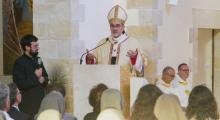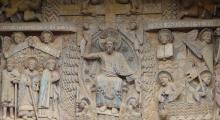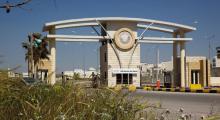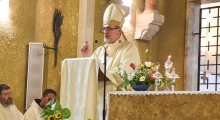Issued by the Catholic Center for Studies and Media - Jordan. Editor-in-chief Fr. Rif'at Bader - موقع أبونا abouna.org
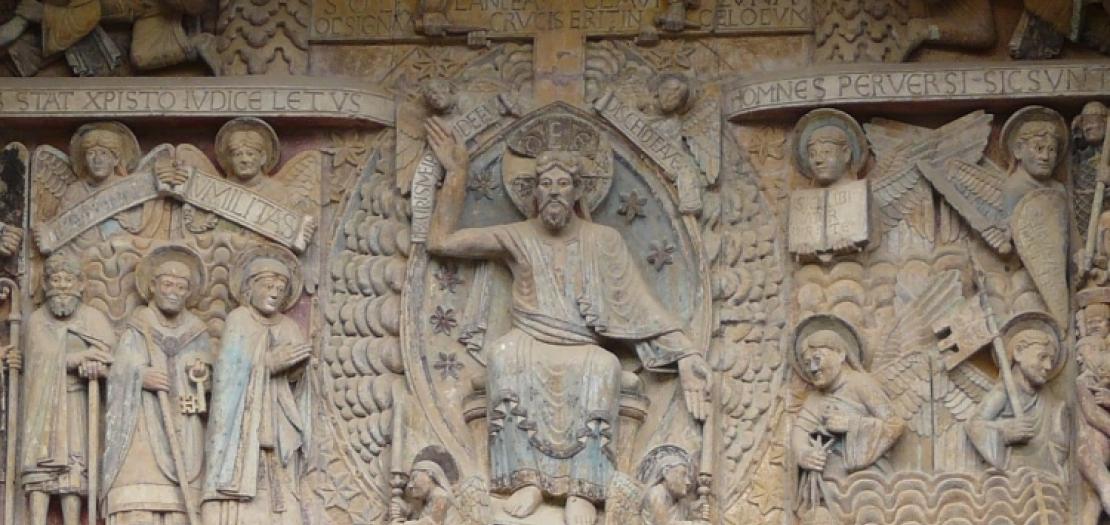
Following is the text of the meditation by His Beatitude Cardinal Pierbattiasta Pizzaballa, Latin Patriarch of Jerusalem, on the 20th Sunday of Ordinary time, dated August 17, 2025:
These are strong words spoken by Jesus in today’s Gospel passage. (Luke 12:49-53) The passage is divided into two parts, which apparently do not have much in common.
In the first part, (Luke 12:49-50) Jesus speaks about himself and his mission. In doing so, he uses two very strong images: that of the fire that he has lit and that of the baptism that he knows he needs to be baptized.
In the second part, (Luke 12:51-53) however, Jesus speaks of the disciples and what happens to them when they allow themselves to be ignited by the same fire that Jesus ignited, when they allow themselves to be immersed in his own baptism.
Let us focus first on the first part, because it is important to understand well which fire and which baptism Jesus is talking about. The evangelist Luke has already used the image of fire twice.
The first time on the lips of John the Baptist, in chapter 3: “I am baptizing you with water, but one mightier than I is coming. I am not worthy to loosen the thongs of his sandals. He will baptize you with the holy Spirit and fire,” (Luke 3:16) Immediately afterwards, John makes it clear that the coming Messiah will hold judgment: “His winnowing fan is in his hand to clear his threshing floor and to gather the wheat into his barn, but the chaff he will burn with unquenchable fire.” (Luke 3:17)
The fire that John speaks of is a fire that purifies, that removes the dross and that is associated with God’s judgment, which rewards the good and chastises the wicked. The image of baptism also recurs in these verses: the Messiah will baptize all with the Holy Spirit and with fire.
The second time it comes to the lips of the disciples James and John, who, faced with the rejection of a village of Samaritans, suggest to Jesus that a fire should fall from heaven to destroy them all (“Lord, do you want us to call down fire from heaven to consume them?” (Luke 9:54) And Jesus turns to them and rebukes them. (Luke 9:55)
For Jesus does not want to kindle a fire to destroy the wicked, as so many would expect. It is not the fire expected by the Baptist, who will be the first to be troubled by the Lord's meek style. (cf. Lk 7:19) Nor is it the fire that the disciples expect, a fire that extinguishes evil by extinguishing the wicked. The fire that Jesus brings it will light up at the same time as he receives the baptism that awaits him, namely on the cross: his fire is therefore that of love, it is the Holy Spirit.
It burns slowly and gently, without destroying anything, but it warms hearts and opens them to true life.
From this moment on, the time of decision and judgment begins for the disciples. Not God’s judgment, but their own judgment about life, a new view of things, different parameters with which to read reality, different and new priorities.
Here is the link to the second part of today’s passage, which speaks of division: where there is a family, a group of people, there will be division through the fire that has ignited or not ignited the lives of the various members. Those who are ignited by it, those who are committed to the Lord’s way of life, leave the old way of life, die to an old style, they are no longer what they once were, and their own no longer recognize them. It is not about fighting a war at all costs or forcing something on someone, but about bearing the consequences of the new that catches up with you.
The Christian life begins when you leave the old man behind and the new man is born. There is a “from now on” that marks a turning point, that causes a division (“From now on a household of five will be divided, three against two and two against three.” (Luke 12:52)
The image of fire will appear several more times in Luke’s Gospel. And the last time on the lips of the Emmaus disciples, who were baptized into the Word of the risen Lord and finally no longer see reality based on their own patterns of death, but in the light of Easter. And so they have no other image to say what had happened to them in their encounter with the Lord than that of something burning in their breast, like a fire that had been kindled within them (“Were not our hearts burning within us while he spoke to us on the way?” (Luke 24:32)
The fire was kindled, and it could not but spread everywhere. And those who are ignited by it, like the disciples of Emmaus, change their ways, find new words, find hope again.
+ Pierbattista


